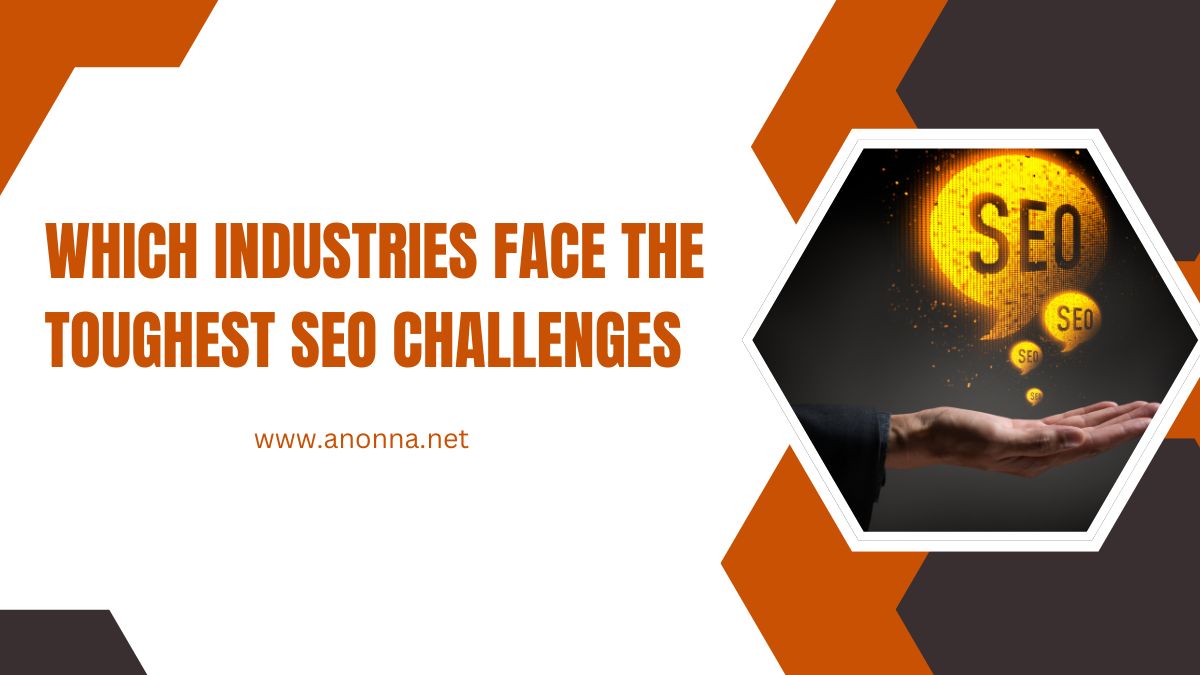
Which Industries Face the Toughest SEO Challenges? A Guide to the Most Competitive Markets
Search Engine Optimization (SEO) is one of the primary and fundamental digital marketing strategies designed for businesses to improve their online presence on search engines. However, SEO difficulty varies based on the industry. In some industries, there is extreme competition, tight regulations, and fierce paid ad spend, making it more difficult to rank at the top of the search engine results pages (SERPs).
Because some industries make SEO more challenging than others.
📌 Keyword Competition – Particular industries, such as law, finance, and healthcare, are highly competitive and take time and money to rank.
📌 Strict Regulations on Google — High-demand industries like medical, legal, financial services belong to Google’s YMYL (Your Money, Your Life) guidelines, which means they need to have stronger trust and credibility to get ranked.
📌 Paid Ads Control – In areas such as real estate, insurance, and e-commerce, PPC ads frequently push organic results much lower, raising competition for SEO content.
📌 Numerous Changes to Algorithms – Businesses that depend mainly on Google updates and content policies must constantly adjust their SEO plans to preserve the listing.
What This Article Will Cover
So in this piece, we’re going to look at:
✔ The hardest industries for SEO and why they are uniquely challenged.
✔ Factors impacting SEO competition and high SEO competition in these industries.
✔ Step-by-step training on growth when it comes to your SEO game.
By the end of the article, you fully understand which industries will require a stronger push to rank on Google, as well as the steps businesses across these sectors can take to help their SEO efforts in spite of the hurdles. 🚀
Why SEO is Harder in Some Industries
Some industries are more SEO difficult than others. Some are extremely competitive, others are heavily regulated, and others are populated by paid ads. Industries like these require substantial investment of time, resources and expertise from businesses to earn and keep rankings.
Here, we’ll take a look at what makes the task of SEO more complex in some industries than others.
The high competition and saturated marketplace
Some industries are so competitive that it is virtually impossible to rank on the first page of Google — especially for new or smaller companies.
📌 Why Is SEO Tougher in Saturated Markets?
✅ Dominance of Established Brands – Often the established players in industries such as real estate, insurance and e-commerce or finance will have a strong domain authority, significant backlinks, and large content libraries.
✅ High Value Keywords with High Competition – These industries hold some of the most expensive keywords with the highest search volume and CPC (Cost Per Click). For example:
“Personal injury lawyer” – CPC: $100+
Best credit card – CPC: $30+
“Car insurance quote” – CPC: $50+
✅ SEO Needs A Huge Investment – The competition is so fierce that there is need for businesses to invest in:
✔ Long-form, high-quality content to differentiate yourself.
✔ Quality backlink acquisition to work toward improving authority.
✔ Technical SEO modifications for a speedy, mobile-friendly site.
📌 Example:
A new e-commerce store that wants to rank for “best running shoes” is up against Amazon, Nike, Adidas, and other big players. Top rankings in the search results are simply not possible without proper SEO strategy.
SEO Strategy For Competitive Markets 🚀
✔ Target niche, long-tail keywords (like “best running shoes for flat feet”).
✔ Create top-notch backlinks from reputable sources in your industry.
✔ Do voice search optimization and localized SEO to target the audience.
Money, Your Life Guidelines & Google’s Strict Regulations
For some industries, Google has a tighter focus — making it more difficult to rank without passing those strict content and credibility standards.
📌 What is YMYL (Your Money, Your Life)?
YMYL content affects a person’s health, financial stability, safety, or well-being.
YMYL industries include healthcare, finance, legal services, and news media.
In its efforts to ensure users get accurate, reliable information, Google takes a stricter view of ranking signals.
📌 Why Is SEO Harder in YMYL Industries?
✅ E-E-A-T (Experience, Expertise, Authoritativeness, Trustworthiness) Is More Important
Google rewards content from licensed professionals, medical authorities and financial experts.
Content should cite authoritative sources (government agencies, research studies, expert opinions).
📌 Updates Less Frequent but Higher Impact on YMYL Sites
Core updates can cause significant ranking changes for medical and financial websites.
Next, the content needs to be verified and substantiated.
📌 Example:
A small health blog is not going to have a chance to rank against WebMD, Healthline or Mayo Clinic unless it can prove medical authority and trustworthiness.
Non expert-based content on a personal finance blog won’t outrank trusted sources on sites like Investopedia, or Forbes.
🚀 SEO Approach for YMYL Domains:
✔ Do publish content written by experts, with comprehensive author bios and credentials.
✔ Backlinks from .gov and .edu sites moabmountainmayhem.gov, .edu) sources.
✔ Use structured data (FAQ Schema, Medical Schema, Financial Schema) for better visibility.
Do Paid Ads Affect My Organic Rankings?
Industries such as PPC (pay-per-click) spend heavily and force organic results lower in search rankings.
📌 Why PPC has Edge Over Organic SEO in Some Industries?
✅ Paid Ads Show Up First in the Search Results
Google Ads occupies the 1st 4-5 positions of the search results, below the fold from organic listings.
Common in sectors such as real estate, insurance, legal services, and e-commerce.
✅ High CPC (Cost-Per-Click) in Competitive Industry
Every day, businesses in finance, law, and e-commerce spend millions on paid ads, leaving it increasingly difficult for an organic result to earn a click.
Here are a few example rates you might see in a more competitive industry:
“Best auto insurance” – $40+ per click
“Mortgage rates” — $35+ per click
“Personal injury lawyer” – $100+ per click
✅ Business Uses PPC to See Fast Conversion
PPC could deliver an immediate traffic while SEO may take time to process but this is the reason why many companies are relying on Google Ads instead.
Paid search campaigns are targeting methods that are controllable by the business, while organic search engine results via SEO take months to rank.
📌 Example:
For example, a real estate company might find it difficult to rank organically for the search term “homes for sale in Los Angeles,” given that PPC ads displayed by Zillow, Redfin, and Realtor.com dominate the top spots.
For a small e-commerce company vying with Amazon, eBay, and Walmart, SEO alone isn’t enough; it also has to invest in PPC.
🚀 How to Win in PPC-Centric Industries:
✔ Striking balance: Combined SEO + PPC
✔ Optimize GMB (Google My Business) and local search listings.
✔ Work on real longtail type keywords with low competition organic rankings.
✔ Create engaging meta titles & descriptions to enhance CTR.
Conclusion – Why SEO Is Harder in Some Niches
📌 Key Takeaways:
✅ Lots of competition in your industry (law, finance, healthcare, e-commerce) means you face a higher SEO investment.
✅ Google’s rigorous E-E-A-T guidelines must be satisfied for YMYL industries to rank.
✅ PPC heavy industries are pushing organic ranking down, guess what — you need seo & paid ads.
The Hardest Industries to Do SEO For
However, some industries are inherently less SEO-friendly due to high competition, strict regulations, reliance on paid ads, or complex search behavior. Companies within these industries need to spend significantly more time, effort, and resources to get on the front page of Google.
In this guide, we look at the hardest industries to compete in for SEO, and we share actionable tips for climbing the rankings.
Law Firms & Attorneys (Legal Industry)
SEO is one of the most competitive industries in the world, and the legal field is no exception — they face high costs for highly competitive keywords, strict rules on content and backlinks, etc.
📌 Why Is SEO Challenging for Law Firms?
✅ High Competition for the Keywords – Keywords such as “Personal Injury Lawyer” or “Divorce Attorney Near Me” are extremely competitive and pricey in Google Ads ($100+ per click).
✅ Strict Content Guidelines — For example, legal content must be correct, compliant with advertising laws, and devoid of deception.
✅ Backlink Challenges: It is crucial for legal practice to obtain high-authoritative law-related website links to build credibility.
🚀 SEO Guide for Law Firms:
✔ Optimize for local SEO & GMB – Most legal queries are geo-targeted.
✔ Objective long-tail keywords (for instance “Best personal injury lawyer in Chicago”) that focus on less aggressive searches.
✔ Write practical and in depth guides including legal guides, FAQ and case study to rank on Information queries.
YMYL Industry: Healthcare & Medical
Google is particularly strict when it comes to ranking health-related websites, since erroneous information could affect users’ health. SEO is tougher for this industry, as it falls under YMYL (Your Money, Your Life) policies.
🥒 Why Is SEO So Hard for Healthcare Businesses?
✅ YMYL Guidelines – Google wants medically-accurate, well-researched information with content that has been written or reviewed by qualified healthcare professionals.
✅ Competing Against Large Health Websites – Small businesses often face uphill battles against large competitors, like WebMD, Healthline, and Mayo Clinic.
✅ Regulatory compliant – medical content must adhere to health regulations and not be misleading.
🚀 SEO FOR HEALTHCARE BUSINESSES: TIPS
✔ Follow E-E-A-T (Experience, Expertise, Authority, Trustworthiness) – Have expert-reviewed content along with author bios.
✔ Local SEO optimization – Focus searches for “doctors near me” and “best dentist in [city].
Use structured data (ex. medical schema markup) to increase the visibility of your content in search.
Finance & Insurance
The finance industry is one of the most challenging niches for SEO, as it features high competition, strict Google policies and is controlled by established brands.
📌 Why Is SEO So Hard for Finance & Insurance Websites?
✅ Keyword Competition — Keywords like “best credit card” or “car insurance quote” can cost $30-$50+ per click, so PPC campaigns can be $$$.
✅ Google’s YMYL Policies – Financial guidance can only be accurate, trustworthy, and backed by experts.
✅ Banks & Fintech Firms Control the Top of the Rankings – Large brands such as Bank of America, NerdWallet, and Investopedia make it difficult for smaller firms to position well.
Rocket 🚀 SEO Advice for Financial Sites:
✔ Produce factual financial guides featuring experts⚡️
✔ Get high authority backlinks from financial institutions and news websites.
✔ Use FAQ schema markup to rank for popular finance questions.
Listings for Real Estate & Property
The hyper-competitive nature of the real estate market, specifically regarding local searches. Most agencies cannot rank due to the housing big sites (Zillow, Realtor. social media posts (on sites like Facebook, Twitter and LinkedIn) and rental listings (on sites like Apartments.com, Zillow and Redfin) dominate in Google’s results.
📌 What Makes Search Engine Optimization Difficult for Real Estate Agents?
✅ Huge Local Competition – Every realtor, broker and real estate agency competes for local searches.
✅ Heavy Dependence on Paid Ads – Google Ads and Zillow-sponsored listings bury organic results.
✅ Constantly Changing Listings – Because real estate listings don’t last forever, they’re challenging to keep SEO ranked for the long term.
SEO Tips for Real Estate Agents🚀
✔ Use hyper-local searches (examples “Luxury apartments in Dubai” or “Best real estate agents in Miami”).
✔ Rank in Google’s Local Pack with Google My Business & local citations.
Write blogs on market trend reports, home-buying guides and neighborhood insights to get organic traffic.
E-Commerce & Online Retail
A leading cause of the intense SEO competition in this space are the goliaths of retail like Amazon, Walmart and so on, dominating search results.
🔍 Why Is E-Commerce SEO Challenging?
✅ Amazon Rules Search Rankings – Amazon usually outranks smaller online stores, making it impossible to compete.
✅ E-commerce Sites Have Thin Content on Product Pages – Many sites fail to write enough content about the products they sell, limiting they setups to rank.
✅ High Dependence on Paid Ads – Google Shopping ads, and social media ads (Facebook, Instagram) divert traffic from organic search results.
🚀 E-Commerce SEO Tips:
✔ Ensure product pages are descriptive with FAQ, and user reviews
Add structured data (Product Schema, Review Schema) to boost search visibility.
Read also: ✔ Add category page structure for a wider search intent (e.g., “Best men’s running shoes”).
Travel & Hospitality
Popular travel-related sectors have very stiff competition and Google often places its own travel services higher, making travel one of the most tricky sectors when it comes to SEO.
📌 What Makes SEO Difficult for Travel Websites?
✅ Competing With Travel Giants — Booking. com, Expedia and TripAdvisor rule travel-related searches.
✅ Seasonality Impacts Search Trends – When people want to travel depends on holidays, weather conditions, and the state of the economy.
✅ Google Favors Its Own Services – Google Flights, Google Hotels and Google Travel Take Away Organic Visibility From Travel Agencies
🚀 Travel Business SEO Guide.
✔ Build destination guides and travel blogs for organic traffic.
✔ Use SEO booking pages with rich descriptions, user reviews, and high-quality images.
✔ Make it ready for voice search queries e.g “Best family-friendly resorts near me”.
Conclusion — Beating SEO Challenges in Competitive Fields
📌 Key Takeaways:
✅ Some of the most competitive sectors you can imagine in SEO are: legal, healthcare, finance, real estate, e-commerce, travel, etc.
❌ These fields are difficult to rank due to high competition, strict regulations, and PPC saturation.
✅ In regulated industries, make success with E-E-A-T (Expertise, Authority, Trust) and Local SEO.
✅ Small businesses can compete with niche keyword targeting, structured data, and high-quality content.
🚀 Final Words:
It might seem like more effort than SEOing for less competitive industries, but not impossible. Focus on quality content, authority, and technical SEO can still rank — even if competing against the bigger players out there.
How to Win SEO in Highly Competitive Industries
In a peak saturation industry, it won`t be enough with elementary SEO — you need data driven though, targeted optimization, and good quality content. To secure high placements and generate organic traffic, legal, healthcare, finance, real estate, e-commerce, and travel companies need to step away from regular SEO practices.
In this part of the article, we will discuss the top ways to unaffiliated better for SEO in competitive industries.
Concentrate on Specialized Keywords & Long-Tail Search Queries
As a newer business, trying to compete for broad, high-volume keywords in competitive industries is next to impossible. Instead, go for longer-tail keywords that are niche-oriented and aligned with user intent.
📌 Why Are Long-Tail Keywords Important in Competitive Industries?
✅ Reduced Competition– Trying to rank for “best lawyer” is nearly impossible, but “Best DUI defense attorney in New York” has far less competition.
✅ Higher Conversion Rates – Users looking for certain long-tail queries are in the decision phase.
✅ Improved Voice Search Optimization – Long-tail keywords match naturally with conversational search queries.
SEO for Niche Keywords Targeting
✔️ Discover specific search queries with Google’s People Also Ask (PAA) & Auto-Suggest.
✔ Use tools such as Ahrefs, SEMrush, and Google Keyword Planner to identify high intent, low competition keywords.
✔ Use question-based searches as a basis for optimization (e.g., “How much does a divorce lawyer cost in California?”).
📌 Example:
– For a Chicago personal injury law firm, they should not target broad terms like: “personal injury lawyer” but much more local, long-tail variations like:
Top personal injury attorney Chicago for vehicle collision
“Cheap personal injury lawyer near me”
🚀 Key Takeaway: Prioritizing niche keywords can help businesses quickly rank higher and attract high-converting types of traffic in competitive industries.
Create Backlinks with Authority
In sectors ranging from finance to healthcare to law, trust and authority are where Google places supreme value. One of the most impactful ways to build credibility and authority in the field is by obtaining high-authority backlinks from credible sources such as others in the industry.
Industry Based Why are High-Authority Backlinks Crucial for Competitive SEO?
✅ Enhances Domain Authority (DA) — Backlinks. gov,. edu and high-DA websites play a role in rankings.
✅ Reinforces Google’s Trust Toward Your Website – Google needsTrusted and Expertise Supported Content To populate industries like finance and healthcare
✅ Generates Referral Traffic – An inbound link from a popular site can send qualified leads your way.
🚀 Realistically how to get high-quality backlinks for competitive industries:
✔ Guest Posting – Getting articles published on authoritative industry blogs (legal sites, medical journals, etc.).
✔ PR Mentions & HARO (Help a Reporter Out) – Score some press and expert roundups.
✔ Sponsors & Collaborations — Work with influencers for branded content.
📌 Example:
For example, a financial advisor might earn backlinks by providing insights to Forbes, Investopedia, or The Wall Street Journal.
Healthcare Startups can get articles published in medical associations, research sites, and. edu domains.
🚀 Takeaway: In high-competition niches, creating a strong backlink profile is essential for gaining trust and improving your position!
Improve Local SEO Strategy
Local SEO is one of the most effective ways to draw in nearby clientele, particularly for businesses in law, healthcare, real estate, and finance, and rank in Google’s Local Pack.
Why is Local SEO Essential in Competitive Industries?
- 46% of All Google Searches Are Local – The majority of users search for services nearby.
- Google My Business (GMB) helps businesses rank higher in the organic results – This is really needed for local businesses.
- Quality Local Reviews = Elevated Rankings – Businesses who have high customer ratings rank higher.
How to Rank High in Local SEO for Competitive Industries
- Google My Business (GMB) Listing Optimization – Make sure the business name, address, phone number (NAP), and categories are correct.
- Utilize Location Based Keywords – Use terms that are specific to a city or neighborhood (e.g., “Best mortgage broker in Dallas”).
- Get Customer Reviews – The more positive reviews you have, the more continuing your visit trust, the higher your click-through rates.
Example:
For example, a Los Angeles personal injury lawyer must optimize the GMB profile for “Personal Injury Attorney in LA” and request testimonials.
A neighborhood guide and market report are a must from a real estate agency in order to appeal to local buyers and sellers.
Key Takeaway
The competition for local searches is far less than that for national and international searches — this is why local SEO can be one of the most powerful marketing tools for businesses in high-competition market arenas.
Utilize Content Marketing & Thought Leadership
By creating content on relevant subjects in a competitive industry, you will establish yourself as an authority in your niche, a must for any successful SEO campaign. Consistency, however, is key; companies that publish content that is expert-driven, in-depth, and consistent over time earn trust (with regards to content quality), earn backlinks, and earn pages that rank better.
Why is Content Marketing Effective in Highly-Ranked SEO?
- Google Likes Long-Form, Quality Content – In-depth guides, case studies, and research papers are the way to go.
- Positions Yourself as an Industry Leader – Thought pieces, whitepapers, and reports create authority.
- Drives Natural Backlinks & Shares – Content of high value will result in organic backlinks from trusted sources.
How to Write Authority-Building Content in Competitive Industries
- Write mega, resource-type, expert-driven guides (e.g., Ultimate Guide to Estate Planning)
- Follow it with data, stats, case studies so as to gain credibility.
- Use video, infographics, and interactive content to increase engagement.
Example:
A financial consultant publishes a “2024 Investment Trends Report,” linking back to the source from financial news sites.
A law firm produces in-depth case studies and legal guides ranking for informational search queries.
Key Takeaway
Content marketing is a long-term SEO strategy that allows businesses to differentiate themselves in competitive industries.
Summary – Succeeding in Competitive SEO Markets
What You Should Know to Succeed in Highly Competitive SEO:
- Target Niche & Long-Tail Keywords – Do not use broad keywords, but rather high-intent, specific search queries.
- Create Quality Backlinks – Generate links from reputable sites (news outlets, .gov, .edu, and industry leaders).
- Conquer Local SEO – Optimize Google My Business, local keywords, and client testimonials to rank for local searches!
- Publish Authority Content – Write deep guides, expert opinion and studies to earn trust and backlinks.
Final Words:
Some industries are very competitive when it comes to SEO, and they take a lot more work, money, and skill, but they are achievable.
Conclusion — Conquering SEO Struggles In Competitive Sectors
SEO is definitely harder in ultra-competitive industries, but not impossible. Strategic, data-driven SEO is a must for businesses in finance, healthcare, legal, e-commerce, real estate and travel — and effort should begin now if you want to compete and hold valuable search visibility long-term.
Most of the time, these areas boast more difficulty when it comes to SEO, but if you truly understand why you can dive into those advanced strategies and thrive—even if the competition consists entirely of big brands and paid ads.
Key Takeaways:
- SEO is more difficult in places that are highly competitive, YMYL, and ad-dominated.
- FINANCE YMYL — finance, healthcare, and law are industries where credibility and trustworthiness must be stronger.
- Sectors such as real estate, travel, and e-commerce are highly competitive with large brands and aggregators.
- The quality of content is crucial as Google emphasizes trust, authority, and expertise.
- Experience, Expertise, Authoritativeness, and Trustworthiness (E-E-A-T) are essential for ranking in highly competitive industries.
- Expert-led, detailed content performs better than generic, AI-generated articles.
- In this context, local SEO, structured data, and keyword niche selection work hard for the narrow market.
- Long-tail and local keywords are usually easier for businesses to rank for than broad, highly competitive keywords.
- GMB [Google My Business] optimization and schema markup have their importance in improving search visibility.
- In competitive fields, a combined SEO & PPC approach is often needed.
- SEO generates free traffic for years to come, and PPC ensures visibility for every high-value keyword immediately.
- Combining SEO and paid search efforts to achieve maximum results and avoid reliance on a single channel.
Final Words:
SEO for high-competition niches is quite a tedious process and requires the right structured efforts in the long run, but that said if it is done in a proper manner — it can get you phenomenal results. Businesses that invest in:
- High in quality, written by professionals.
- High-quality outreach & backlinking.
- Advanced technical SEO and rich snippets.
- Local SEO & hyper-targeted keywords strategy.
- A mixture of organic SEO and pay-per-click ads.
…and WIN over the competition & sustainable search results—even in the most cutthroat markets.
The key to success?
So keep up your flexibility, stay near to your skills, and optimize around customers and SE simultaneously.
You can see more article from here.



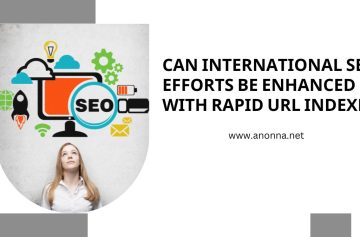

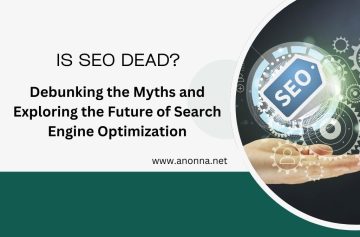
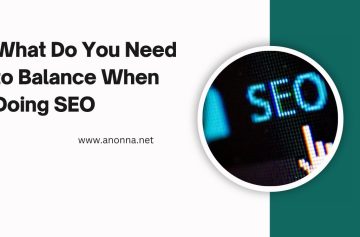
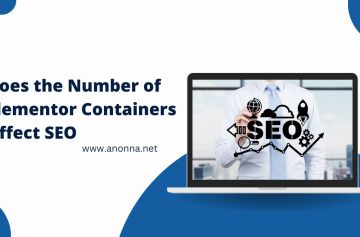
Add comment